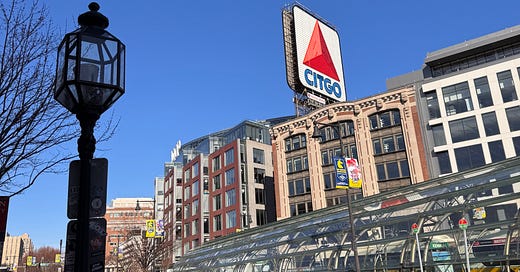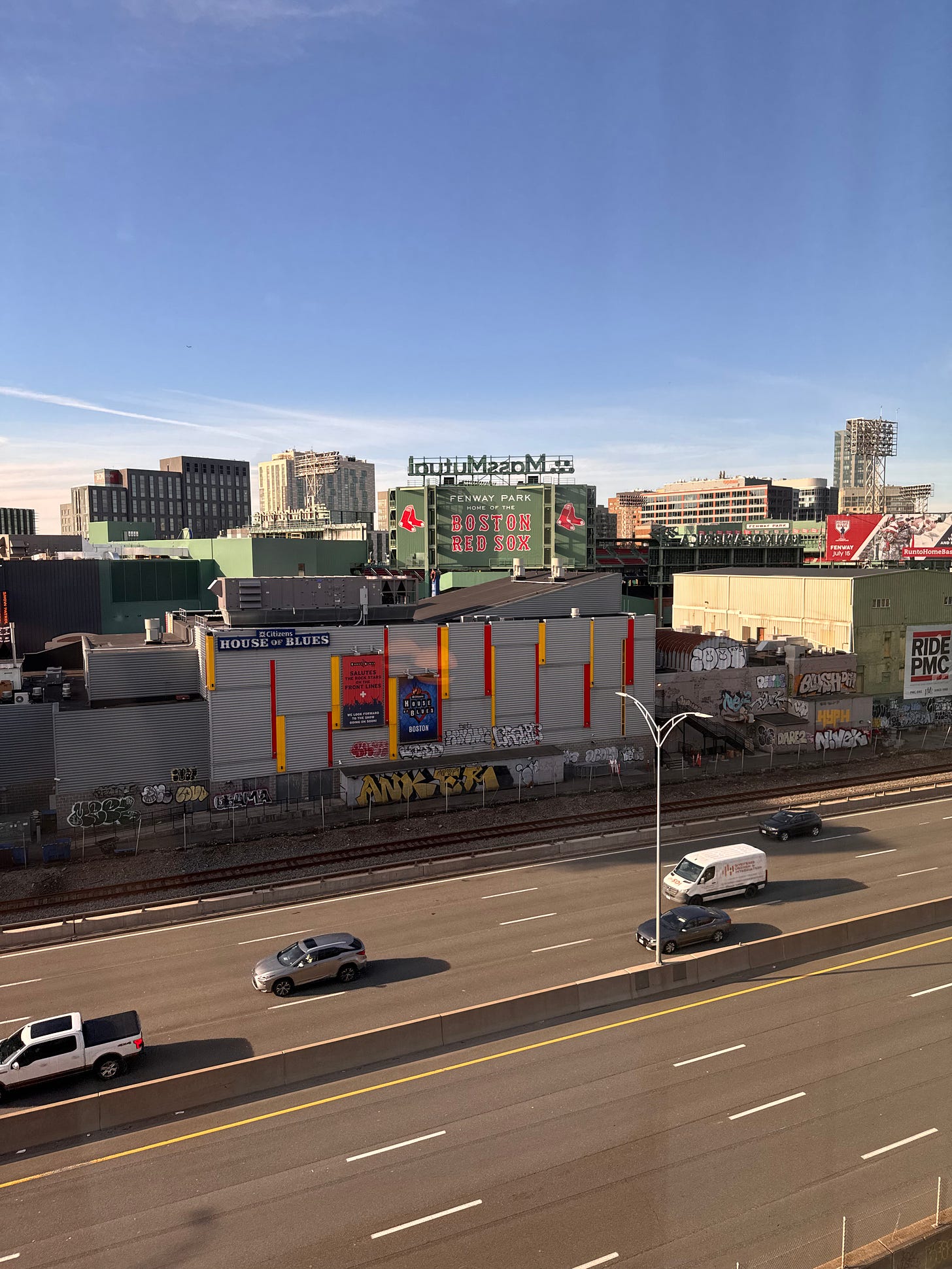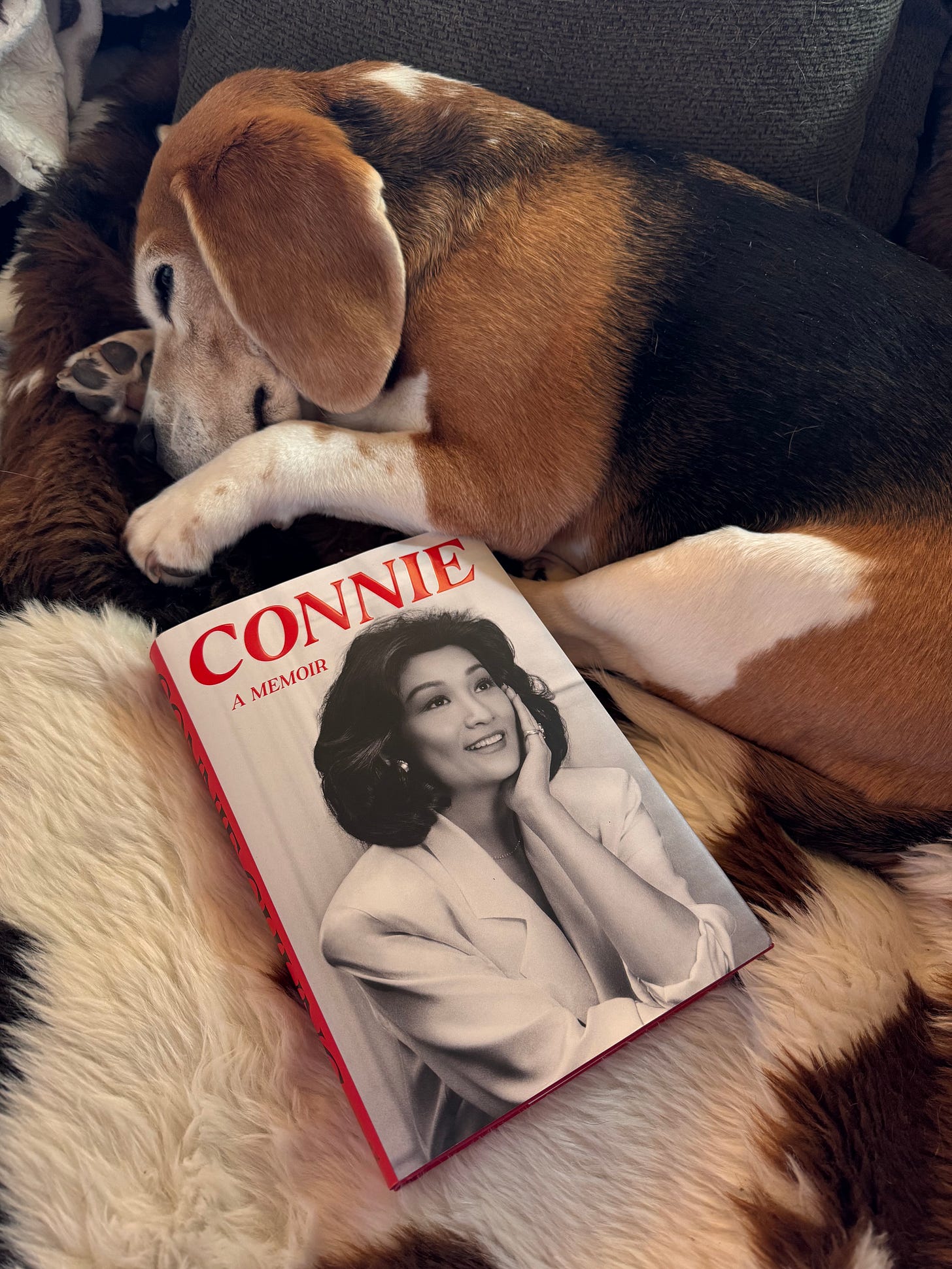Hi readers,
It’s been a whirlwind few weeks, since I started climbing out of my book-revisions hole last month, but I’m popping back up to send out a brief missive in honor of contemporary journalism and narrative nonfiction.
At the end of March, I had the opportunity to travel back east to participate in an annual journalism conference at Boston University, called “The Power of Narrative.” I’d heard good things about this conference from a few journalist friends, and it also happened to be the first-ever journalism conference I’ve attended, other writing-related and academic conferences aside.
The energy of the conference felt very practical and focused, much more so than the usual intellectualizing of academic conferences, even while I noticed how much the specter of contemporary politics hung over the rooms I entered. Nevertheless, to me it felt meaningful to be together in person, conversing with other writers about writing and publishing and their various nuances, especially in such a fragmented time (and famously fragmented media landscape).
Plus, it was wonderful to be back in the greater Boston area for a few (very full) days. When I first arrived, I grinned to see how Bostonian my hotel was — check out this view of Fenway Park!
(Though, as I also joked with a few friends, what a blessing to be deaf when staying right beside the Mass Pike. All the hotel rooms had white-noise machines, apparently.)
The conference itself was full and stimulating, brimming with discussions about reporting and crafting narrative nonfiction, as well as about the nature of truth and the ongoing responsibility of journalists in this fraught and uncertain era.
One of my favorite things to do (as readers of this newsletter know by now) is to ask interesting people questions about their work, and I had a terrific time doing that in a morning session with Andrew Leland, whose book The Country of the Blind is very worth reading. Chatting with Andrew is always lovely, and our conversation about disability memoir felt like a fun live-action version of a written discussion we had a little while ago in The Nation (link available here).
Cross-disability conversations can be a real genre, filled with all kinds of insights about different perceptions of the world, as well as about different skills and understandings of the self and the nature of language (aka my perpetual obsession). It’s a genre of conversation that I savor and enjoy, so go check out Andrew’s book if you haven’t already.
Additionally, another afternoon session I participated in, about “objectivity” in journalism and narrative nonfiction, was very insightful. I got to learn from others who have written about communities they are also a part of, and I reflected on the lens I bring to my own writing, which does so often focus on so-called “subjective” or personal experience.
Once I finished my conference sessions, I enjoyed attending several others, including one with Hannah Beech, a senior correspondent for The New York Times who has reported from all over Asia, including in some very fraught situations. (I’m talking war zones, countries where it’s dangerous to be a reporter or to get access to sources, conversations with refugees as well as political leaders and assassins and hitmen, and so forth.) Her thoughtful remarks, as well as her forthrightness about what journalism really involves and how important it is in promoting a fuller understanding of the world, made me appreciate the behind-the-scenes work that goes into the international stories I read in my news app every day.
But one real highlight of the day: attending the conference’s closing session, which featured a conversation with the pioneering news anchor and reporter Connie Chung. Wow. This woman tells it like it is. No holds barred. Her presence and brash wit had the room on its toes, and I could very much see the dogged energy she must have brought to her entire career. Keep going, keep telling the truth, especially now: this was my takeaway. It was great to see others, particularly other young women, feeling similarly inspired.
And a side note: no less than three times during and after the conference, while talking to various people about Connie Chung, did I have someone older nod vigorously and say to me, “Oh yeah, her husband is Maury Povich, isn’t he?”
I was like, “Ummm, Maury who?” (Generational divides are really showing here. And no, I still don’t really know who he is.)
I got a signed copy of Connie’s book (yes this is how I think of her now, plus it’s the title of the actual book), and now am very much looking forward to reading in the next few weeks. Tallie the dog isn’t too impressed, but she’s always keen to be a reading-on-the-couch dog:
Signing off for now. And yes, keep standing up and telling the truth, y’all.








Thanks for this insight into the conference. I especially liked your views on the cross-disability narrative. We do benefit and learn from the perspectives of others who also deal with barriers. Sometimes I find myself stuck in a Deaf-centric modus operandi and need to learn and grow from the insight of others outside of this perspective.
Kudos to Rachel Z’s comment on the AWP conference.
Outside of conferences, when meeting with individuals or small groups such as small writing support groups, or even with organizations having smaller budgets, how do you handle access with the cost of interpreters?
It all sounds fantastic!! I am curious about communication access, and were there any other Deaf people there? Thanks for the nudge; I have the first book you mention in my garage, won it somehow! and I will dig. it out and read it now. And Connie's book, wow, sounds extremely interesting! I like the summary and take aways you mention from this conference; when I attend them often my head is overwhelmed and I crave exactly this, documenting a short, meaningful takeaway from each presentation. AND Boston is where I was born and grew up, until the rip old age of six that is. On another note, when I attended the AWP conference in Seattle, a couple years ago, I LOVED the energy; book loving, intense, yearning and just damn cool.